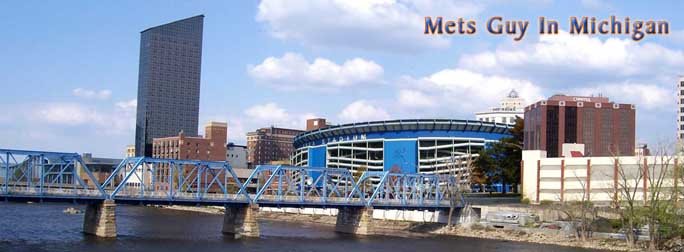 Rich delivers a pitch in the Valley Bureau while Pierce conducts an interview.
Rich delivers a pitch in the Valley Bureau while Pierce conducts an interview.Visitors to the Bridgeport Post’s Valley Bureau probably thought the "Romeo and Juliet" poster looked like it was hanging a little too low on the back wall.
But the guys in the office knew the poster had a more important purpose than advertising some community playhouse production. It was our strike zone.
Yes, we played Wiffle Ball in the office when the coast was clear.
As you probably know, Wiffle balls are plastic baseballs with eight oblong holes on one side that allow even a Little Leaguer to break off curve balls like Bert Blyleven.
It was our civic duty to play. We were supporting a local business. On one of my first days heading to work in the bureau, I nearly pulled off the road when I saw the small factory on Bridgeport Ave. with the Wiffle Ball sign in front. The epicenter of all things Wiffle was right there in Shelton, Conn. And just down the street from our office.

And it existed in relative secrecy, too. I could never understand why signs at the city limits didn’t read, "Welcome to Shelton, home of the Wiffle Ball." That area of Connecticut is home to Sikorsky helicopters — in Stratford — and Bic pens and razors and even Subway sandwich shops — both in Milford — all of which have a higher profile, and all of which pale in importance to the Wiffle ball.
The plastic spheres were an essential part of my youth. There aren’t too many places to do more than play catch with a real baseball in suburban New York. But we could take full hacks at a Wiffle ball anywhere in our small yards without fear of injury to person or property. We played Wiffle Ball everywhere.
Since I covered Shelton planning and zoning, I immediately started plotting for any excuse to write about the factory. I eventually came up with something flimsy, placed the call and secured my invitation.

I was greeted by David Mullany, grandson of the inventor, who gave me a quick tour of the machines that pump white plastic into molds. The yellow bats and cardboard packaging were made somewhere else and shipped to Shelton.
I then dropped the burning question: What makes the balls curve?
And I couldn’t believe the answer: "We have no idea."
It was time for the creation story. Every culture has one.
David told me how his father, also named David, and his brother would play baseball with plastic practice golf balls and broomsticks in their backyard. The boys were trying to break off deuces all day, and the grandfather — he, too, was named David — was once a semi-pro pitcher and worried the boys would hurt their young arms.
So he bought a bunch of the plastic golf balls, sat down at the kitchen table with a steak knife and started cutting patterns into the balls.
For some reason, and the family doesn’t know why, the version with the eight ovals on one side easily curved. Hold a ball so the ovals are on the right, ball curves right. Ovals on the left, and you can guess what happens.
The company made a baseball-sized Wiffle ball, and if you look hard you can find softball and mini-sized balls, too.

Then it was time for some inside information. We took our office Wiffle Ball games seriously, especially when the weather warmed up and we took our competitions to the driveway across the street. I needed a strikeout pitch, and I had an audience with a master.
At that point, he bestowed upon me a private lesson on the Wiffle knuckler. And gentle reader, I pass this knowledge on to you. Hold the ball so the ovals face your palm instead of right or left. Place two of your fingertips at the base of the holes, and push off with those fingers as you release the ball. The ball should float in without spinning, and the batter will either be mesmerized by the beauty of the whole thing or flail hopelessly when he realizes too late that no curve is coming.
We got a little out of hand when our lunch-hour games started stretching well into the afternoon, and then when we started challenging the Stratford Bureau.
I think about the story of the Wiffle Ball when I ponder some of life’s big mysteries. We can’t explain why some things happen. They just do. We must remember that God is in control, not us. Accept that curves in life are coming for reasons we can’t — or aren’t meant to — understand.
And once in a while, expect a knuckleball.




